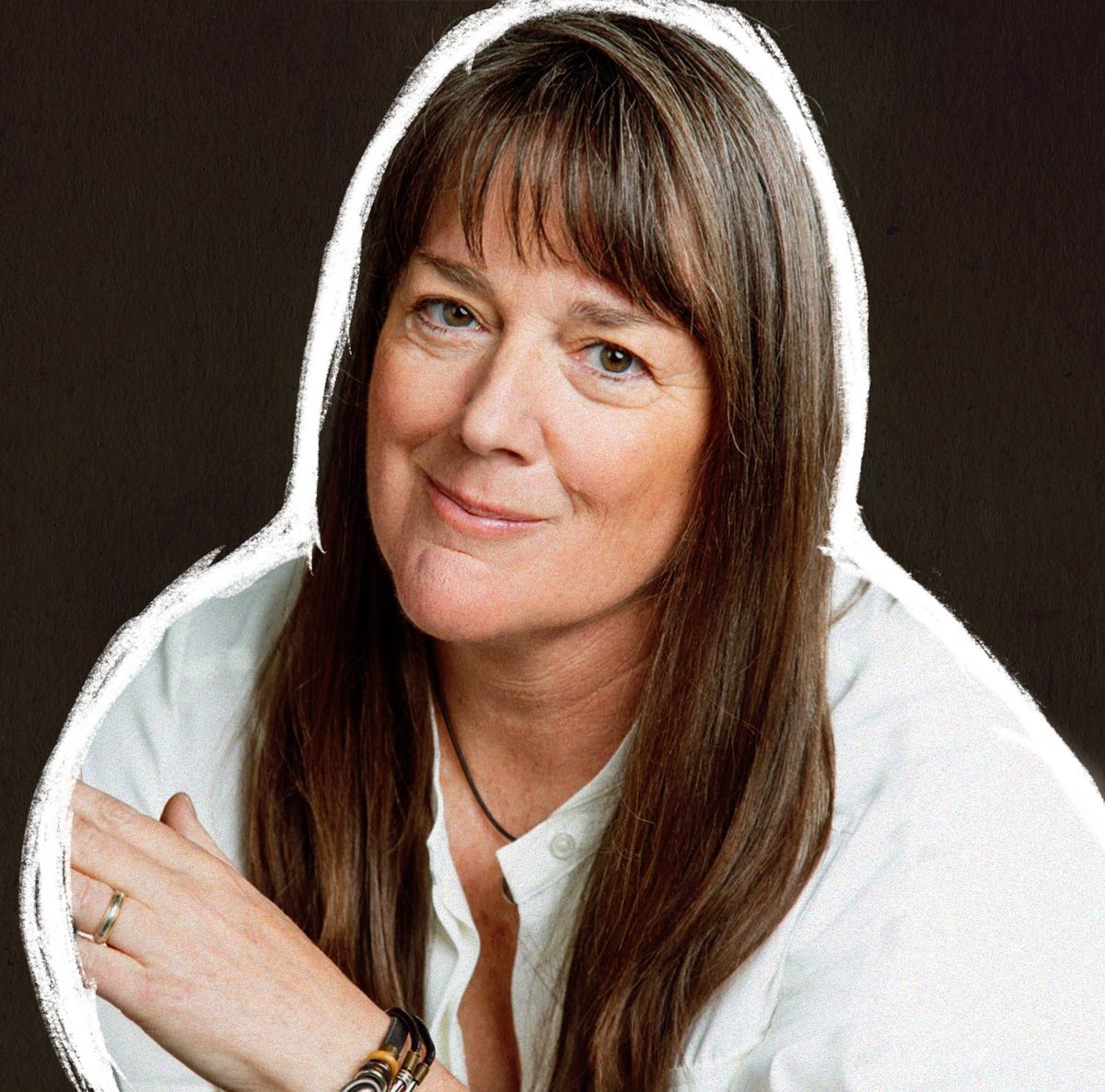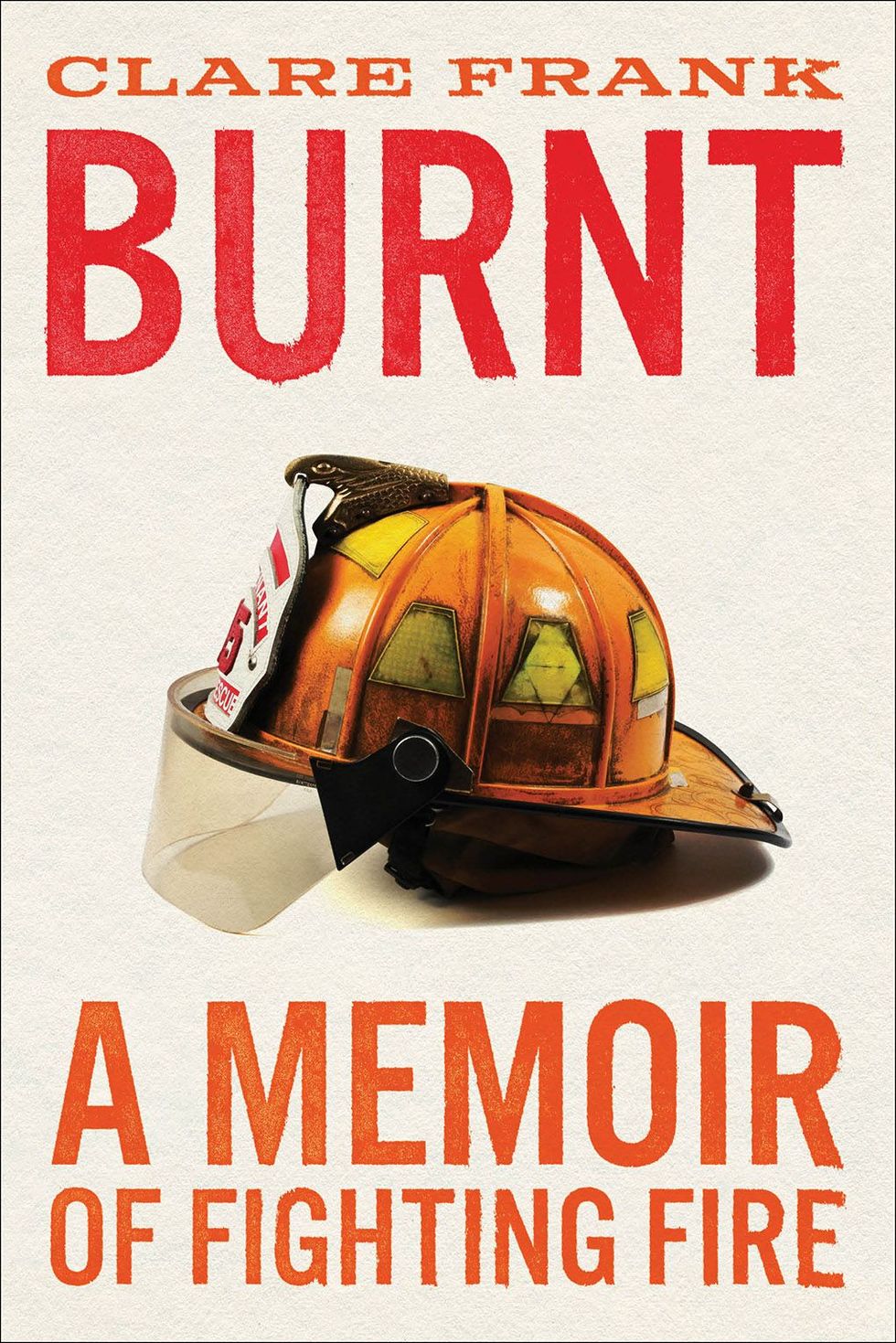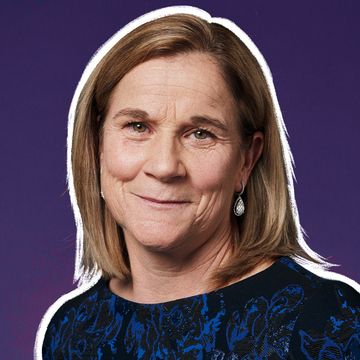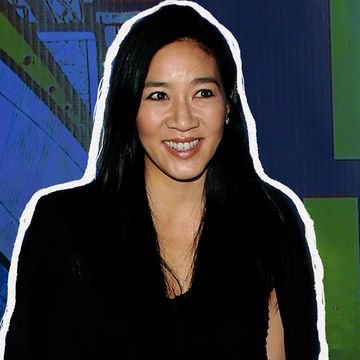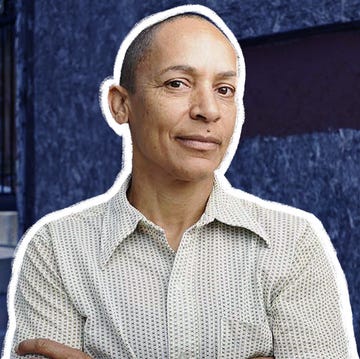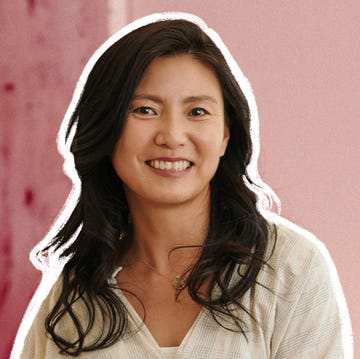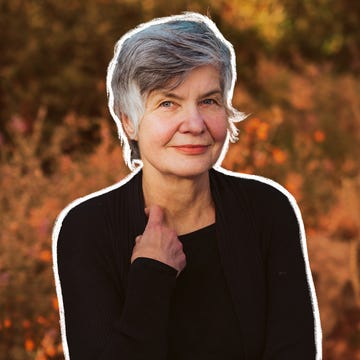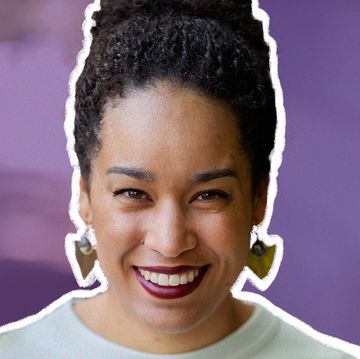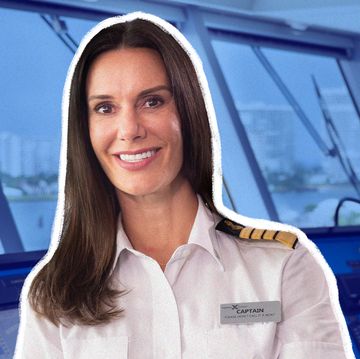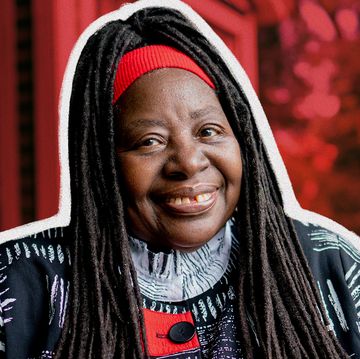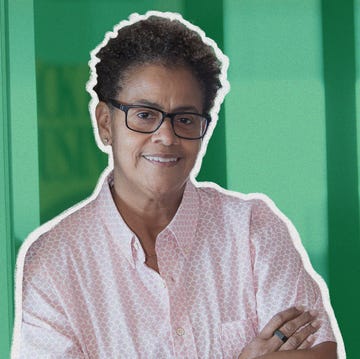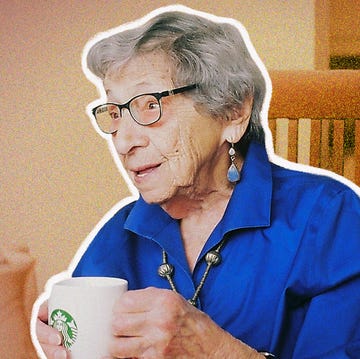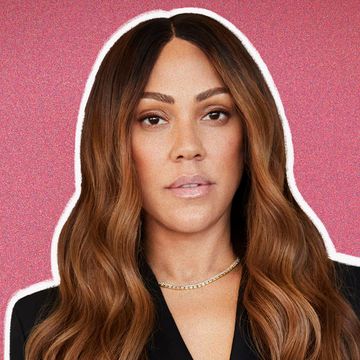In the ongoing Shondaland series Head Turners, we meet interesting women from every facet of life who are crushing it in their careers. From artists and tech mavens to titans of the boardroom, these women are breaking barriers, and they’ll share how you can too.
When she was 17, Clare Frank left her California firefighting application form blank where her birthday should have been. She had legally emancipated herself but was still technically underage. “Li’l Biz,” as she was called — a reworking of her last name Bisbee — quickly rose through the ranks, eventually serving as the state’s only female chief of fire protection.
In her new book, Burnt: A Memoir of Fighting Fire, Frank gives a look inside California’s fire system and at a career that took various twists and turns. Frank pulls no punches, giving glimpses of the not-so-easy parts of the job, which included witnessing accidents and reckoning with her own mistakes.
Throughout her career, Frank always chose the high road. When she couldn’t complete a physical task because her grip wasn’t strong enough, for example, she acknowledged it and bought a grip strengthener, which she would carry around and train with everywhere.
Shondaland recently spoke with Frank about how she handled the lack of female role models on the job, what she does to inspire young women to follow their dreams, and why she’s changed her views on affirmative action.
HOPE REESE: You started off in college but then changed paths to pursue firefighting. What happened?
CLARE FRANK: I made that decision on the back of a fire engine to forgo a traditional four-year collegiate experience, where I had hoped to get a degree in architecture and play college basketball. On the back of the engine, coming back from that first fire, I went, “I’ve found it.”
The path, at the time, was to go to community college and get an associate’s degree in fire protection technology. There were two four-year degrees in the country for firefighting, and they were more administration-based, regulation-based, like fire codes. The associate of science was the path, so I took it.
I had already lived on my own for a couple of years, and I realized that life doesn’t always go according to plan, so making decisions in the moment and backing those decisions, I was already learning how to do that. That’s something that becomes ingrained in you as a firefighter. You make a quick plan of action to attack a fire or stop the bleeding or whatever the task is before you. And you have to own that.
HR: Another turning point came when you had a foot injury that meant you couldn’t wear boots for five years. How did you deal with that news?
CF: I did not take the news well at all. I was lying around devastated. I had put all my eggs in this firefighting basket. I was all in, and I didn’t know how I could be something else.
My brother said, “You gotta keep going. Don’t just sit in a corner.” I had to go find another purpose. I got a law degree — and that actually was great. For the later part of my career, I understood how to handle those things at a very high policy level, and that worked really well for my team for years.
HR: One of your childhood books featured the line “F is for fireman.” How can young girls know they can be firefighters?
CF: There’s these mantras like “If you can see it, you can be it.” I had a different one. There’s an organization called Girls on Fire for elementary school girls. The mantra there is “If you can dream it, you can be it.” That was more what I did.
[My] book isn’t to tell you that you should be a firefighter, but you should follow your passion, whatever that is. Don’t listen to the external world to tell you what it is that you’re passionate about and what you can be good at. Listen to your inside.
HR: You never reported to another woman. How did not having female role models affect you? Did it put pressure on you to succeed?
CF: It kind of couples with what scares you in life. What’s your fear? My fear was failing. That fear was fueled, in part, because of my gender. In that environment, there were a lot of “I told you so’s” when a woman would fail. It would be like, “Yeah, I saw that coming.” I didn’t want to be another “I told you so.”
HR: Your initial feelings about affirmative action weren’t positive. Now, you fully embrace the concept. Why did you change your mind?
CF: When I first heard about affirmative action, it was in a negative context because I heard about it from white men. That flavored my initial reaction, as it applied to me, because I made assumptions that affirmative action brought with it, assumptions from those who were in the majority of the fire service.
Many of them assumed that anyone who was not in that demographic was being pushed forward because of affirmative action, not because they were meritorious in their own right. So, I too had this really negative reaction to affirmative action. Like, “I can do this by myself. I do not need help.” I felt that way throughout my career because I was on this push to prove I belonged there. And not only did I belong there, but I was quite good at it.
I didn’t truly embrace the concept of getting this kind of equitable assistance in government employment until much later when I was a chief. Then, I could see it from a higher level, which is: We really need to make a push to make it more available.
The professional fire service right now is only 4 percent female. During my career, that number doubled, which is abominable. Women still don’t know that they can do this [as a career]. We still have the word “fireman” in our lexicon, which is ridiculous. It isn’t as badass as “firefighter.”
Hope Reese is a writer who has contributed to The New York Times, Vox, and The Atlantic. Follow her on Twitter @hope_reese.
Get Shondaland directly in your inbox: SUBSCRIBE TODAY
